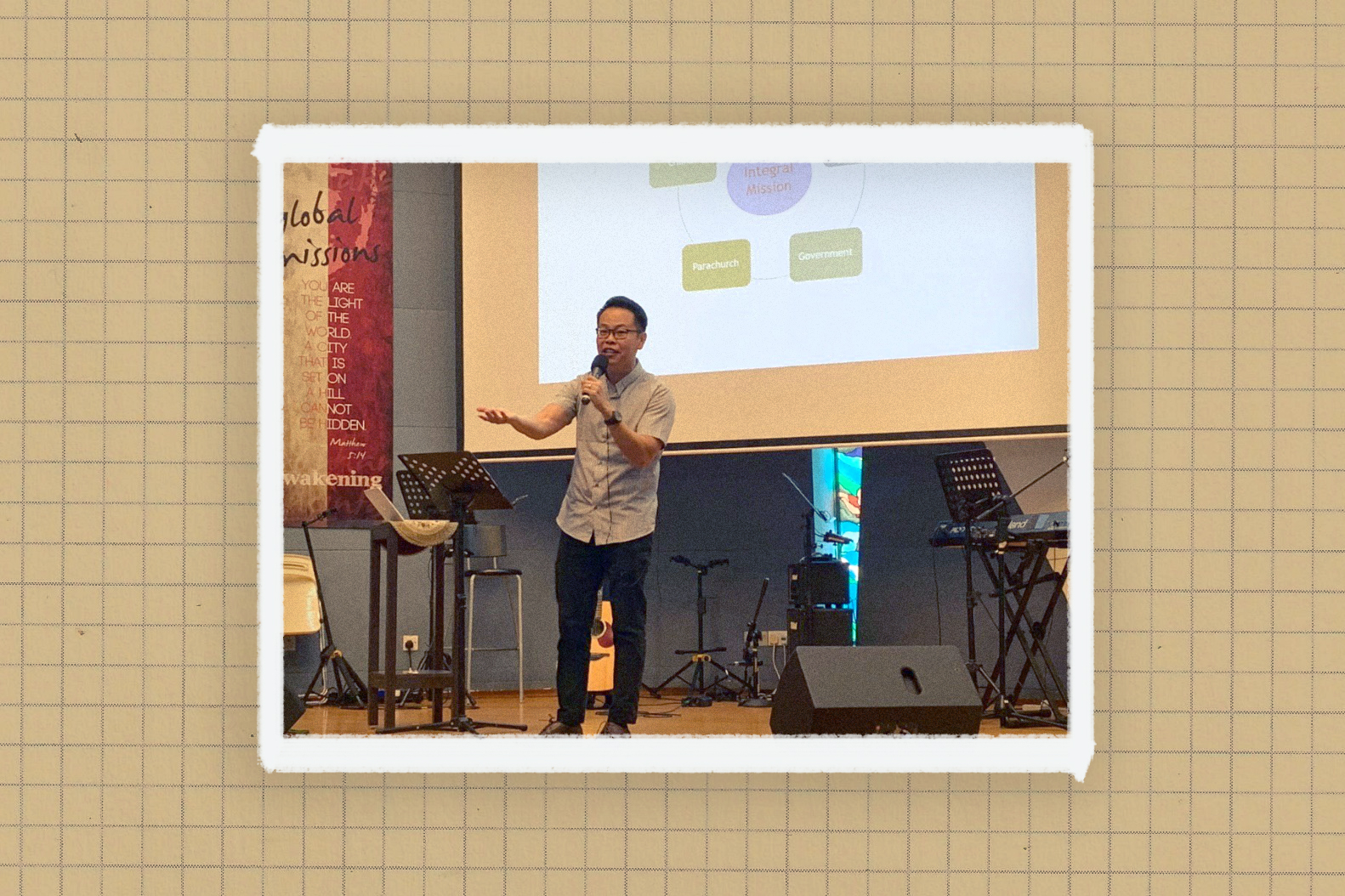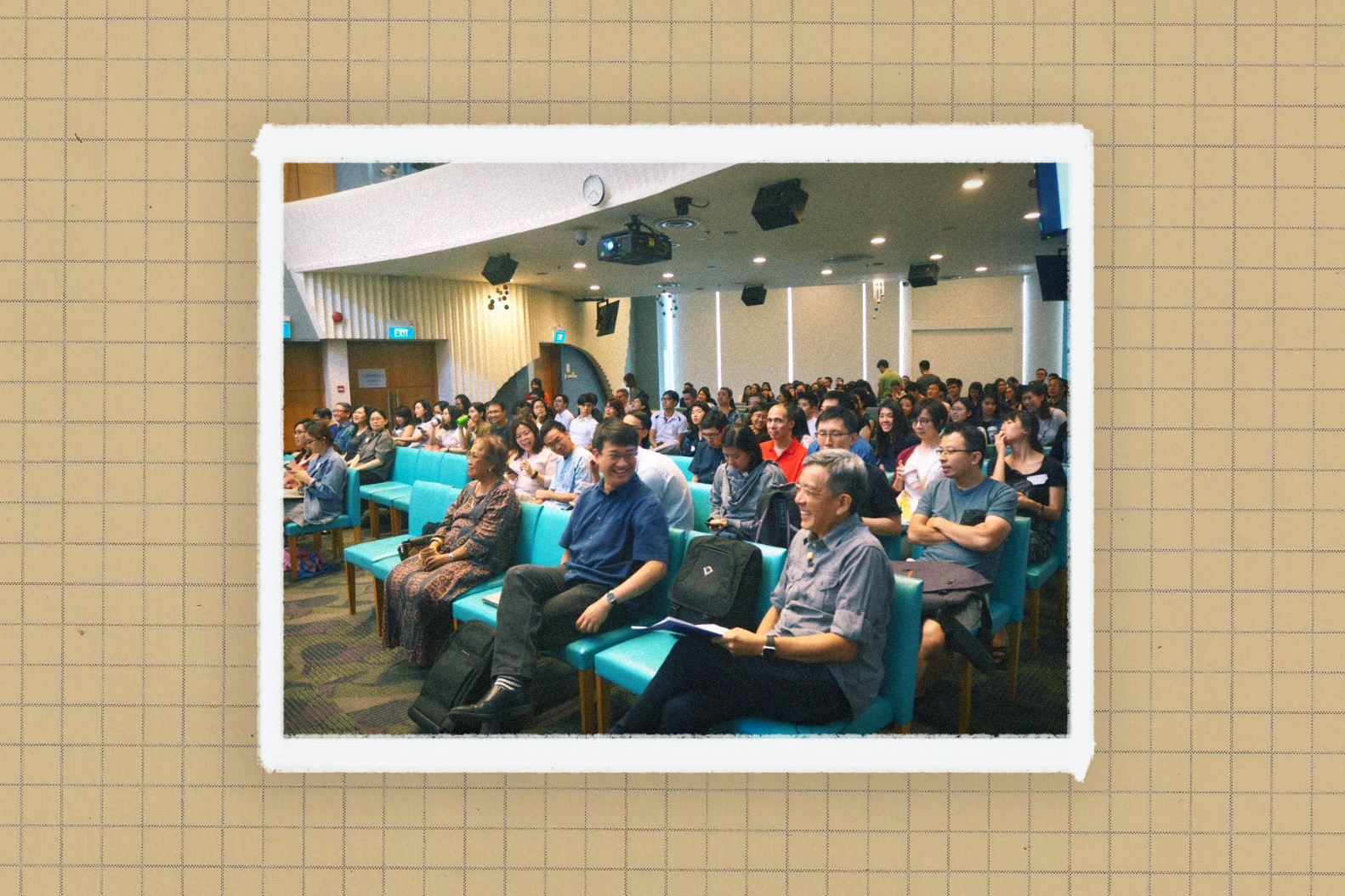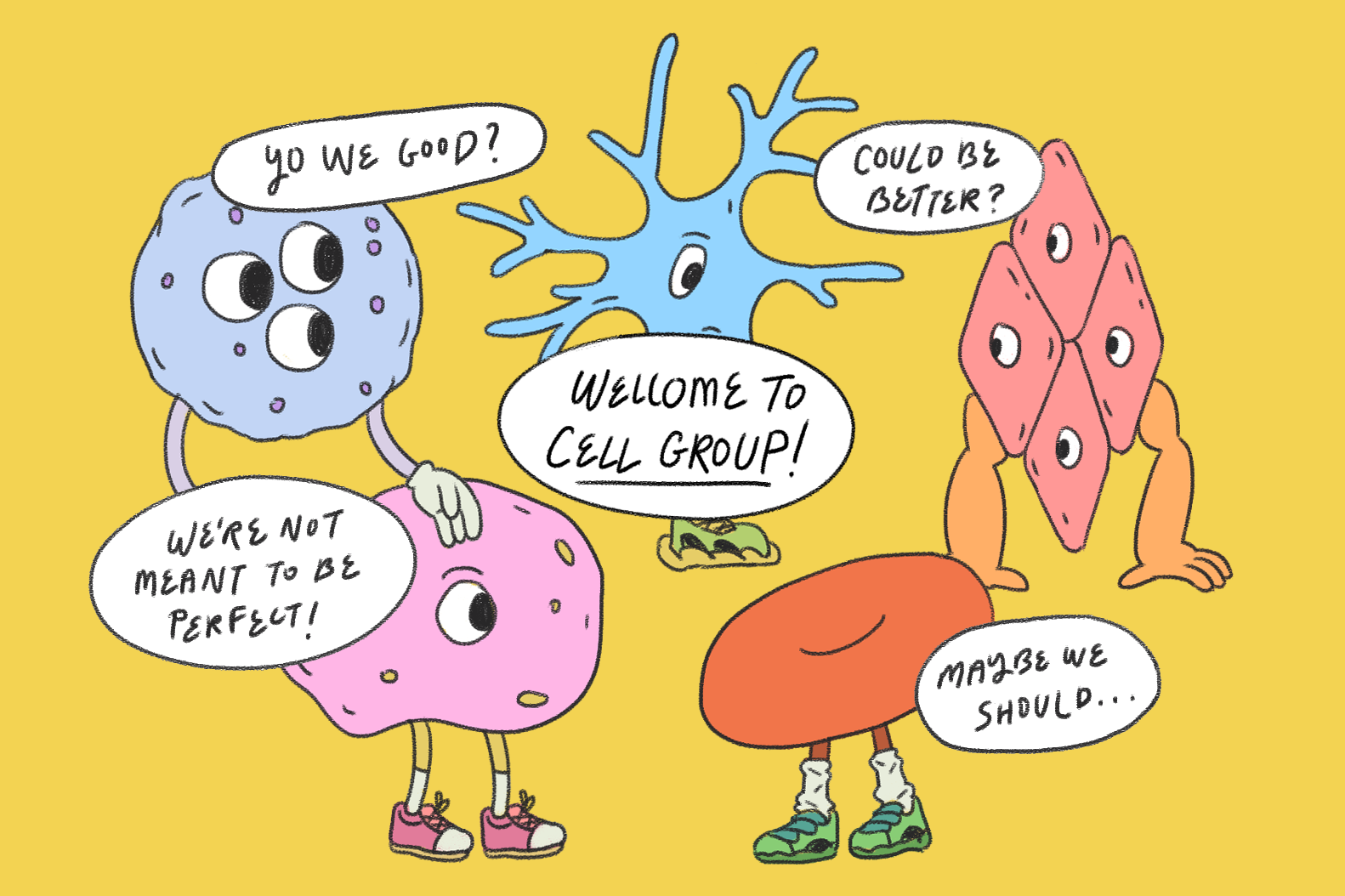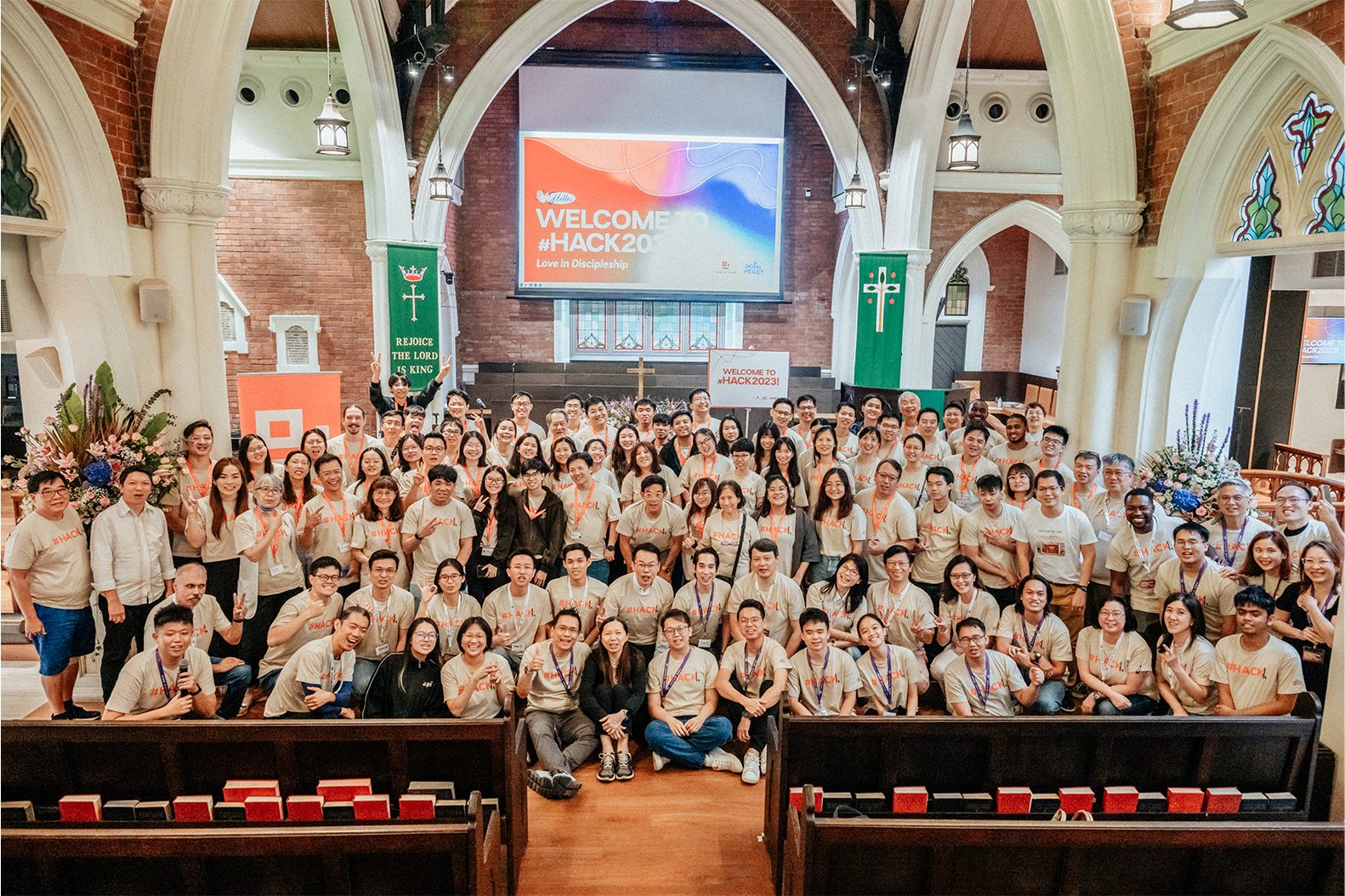Have we mistaken social justice as the means for someone to come to know Jesus Christ? Or perhaps confused evangelism for social action, and social action for evangelism?
Perceptions like these were discussed last Saturday as Christians involved in integral mission, community building and mercy work gathered for a conversation inspired by Micah 6:8: “To act justly and to love mercy and to walk humbly with your God.”
Held at Covenant Presbyterian Church, over 250 people from churches, parachurch organisations and marketplace ministries sought to explore the connection between the good news and doing good.
Here are a few main takeaways:
1. SOCIAL JUSTICE IS NOT A MEANS TO AN END
A trap that many fall into is thinking that doing good works is the means to successfully converting souls.
“Social justice is an end in itself,” said Reverend Raymond Fong, pastor-in-charge of Faith Methodist Church, in his keynote presentation.
“It sounds a bit controversial… but the willingness to journey and carry the burden with that person – that is an end in itself: Witnessing to the love and presence of Jesus Christ.”
He added: “And I believe that if it’s done in the name of the Lord and if the opportunities do come, then we can certainly help the person come to the knowledge of Jesus Christ.”
Dr Melba Maggay, social anthropologist and president of Micah Global, pointed to the example of Jesus who was willing to minister to needs that were presented before Him. Even if he was on his way to raise Jairus’ daughter from the dead, he was prepared to heal a woman who touched the hem of his robe (Mark 5:22-34).
“We need to understand that there’s a seamlessness. Whatever is before you, whatever the Spirit is telling you to do, you do. Recognise that anything that’s done in Jesus’ name will by no means lose its reward. It’s an end in itself,” she explained.
“Whether you’re doing social justice or acts of mercy, we don’t do these things so that we evangelise. It’s a larger concept of what it means to be a witness to the presence of the Kingdom of Jesus in our midst.”
2. SOCIAL JUSTICE AND SOCIAL WORK ARE NOT THE SAME
Both presence and proclamation are important, Dr Maggay cautioned.
Making a distinction between evangelism and social action, she explained that evangelism is strongly founded on Biblical proclamation. Or in her words, an aspect of “chattering”.
“The Word and deed must go together”, she said, emphasising that the communication of the Gospel has to be verbal and non-verbal.
We’re not doing this because we’re social workers.
Dr Maggay also pointed out that the concept of almsgiving can be found across religions. “That’s why it’s important not just to give a cup of water or do acts of compassion. It’s important for them to know that you’re doing this because you’re followers of Jesus.”
Challenging us to examine our motives behind social justice, she questioned whether our good deeds stem from the power and experience of God.
Citing Mother Teresa’s philosophy, Dr Maggay said: “We’re not doing this because we’re social workers. We’re doing this because we’re followers of the King.”
The social work we do as Christians should be distinctive, added Ps Fong. “We’ve got to point them to a Christian hope – that true justice is found in the fact that there’s a Saviour, a King who will return.”
3. SOCIAL JUSTICE SHOULD NOT BE CONSUMERISTIC
Another common pitfall are the consumerist attitudes that we tend to have towards social justice. We can become result-oriented and more concerned with seeing quick outcomes, said Ps Fong.
What’s in for me? Will it add to church growth?
We need, however, to go back to the Bible to form our convictions, he said.

Referring to God’s three key acts of justice, the former lawyer explained that the purpose of justice is always relational.
When Pharaoh was asked to release the Israelites from Egypt, Moses told Pharaoh that God’s people were being delivered from slavery so that they could worship Him (Exodus 8:20).
“That’s a relational reality, to have a relationship with God. And through the Mosaic law established in the wilderness, God established a relationship with His people,” Ps Fong explained.
The second act of justice was when Christ died for us to deliver us from slavery to sin, so that we could be a child of God. And the final act of justice will take place when Christ returns in judgement and we can worship Him in an eternal relationship.
Justice is a relational journey.
Referring to God’s call to love the foreigner among us (Leviticus 19:34) and his command to love our neighbour as ourselves (Matthew 22:36-39), Ps Fong believed that justice is ultimately about a relationship.
“Christ died for the world; it was not conditional on whether a person would respond… Justice is therefore a relational journey. It’s not a programme, it’s not an activity..
“(Social justice) is primarily concerned for the inherent value of persons – who they are and how they should be treated. We’re talking about dignity and fairness.”
Ps Fong reminds us that the work of integral mission is often for the long haul.
He asks: “Salvation may come only after years or maybe even never. Are we prepared to live with that as the outcome of your work?”
Dr Melba similarly encourages us to shift our mindset. She said: “We need to revise our idea of what is eternally significant. We are people who follow in His steps. Whether we are successful or not belongs to the Kingdom.”
4. SOCIAL JUSTICE CANNOT BE DONE IN SILOS
Lastly, social justice has to be a Church effort and not just a single church’s effort.
Dr Maggay reminds us: “The local church is important, but it’s not the only corporate presence of the body of Christ.”
The visible church, however, consists of Christians present in all spheres of life: In politics, the media, the arts, science and technology, business, etc.
Calling for efforts to be synergistic, Ps Fong said collaborative approaches between churches, community organisations and other stakeholders are needed.
Through several case studies presented at Micah Conversation, it was evident that this was also on the heart of other speakers.
Abraham Yeo, founder of Homeless Hearts of Singapore, said that his main priority was to befriend the homeless on the streets. But as he began helping more people, he realised that his ministry alone would not be able to meet the holistic needs of the homeless.
He wants to partner local churches and hopes that they, too, will start their own homeless ministries.

“If you go deep, you can’t go very far. So how do you solve the problem? Encourage other people to catch the fire,” said Yeo.
Other examples of ministries working with local partners include Redemption Hill Church’s Mercy & Justice Ministry. Through serving at a Christian home for teenage girls, a care centre engaging in food distribution and a reading programme for children, the volunteers provide relational support in addition to the practical help offered by organisations.
Ps Fong called the younger ones in the Church to action: “Sometimes we might think that because we are young, we cannot influence the church leadership. But I want you to not stop dreaming of collaborations and partnerships…
“When God gives you the opportunity to talk to your church leadership, He might be using you for a time like this, to speak to someone and steer towards synergistic and collaborative partnerships for integral mission. I believe no one is alone in this – we need one another all the more in the times that we’re in.”
Understanding what social justice is not gives us a clearer understanding of what it should look like.
The Micah Declaration on Integral Mission sums it up well:
“Our proclamation has social consequences as we call people to love and repentance in all areas of life. And our social involvement has evangelistic consequences as we bear witness to the transforming grace of Jesus Christ.
If we ignore the world we betray the word of God, which sends us out to serve the world. If we ignore the word of God we have nothing to bring to the world.”
- In what ways have you witnessed or experienced good works and the sharing of the good news intersect?
- How are you involved in enacting social justice?
- What are some steps you can take to help support your church in these areas?









